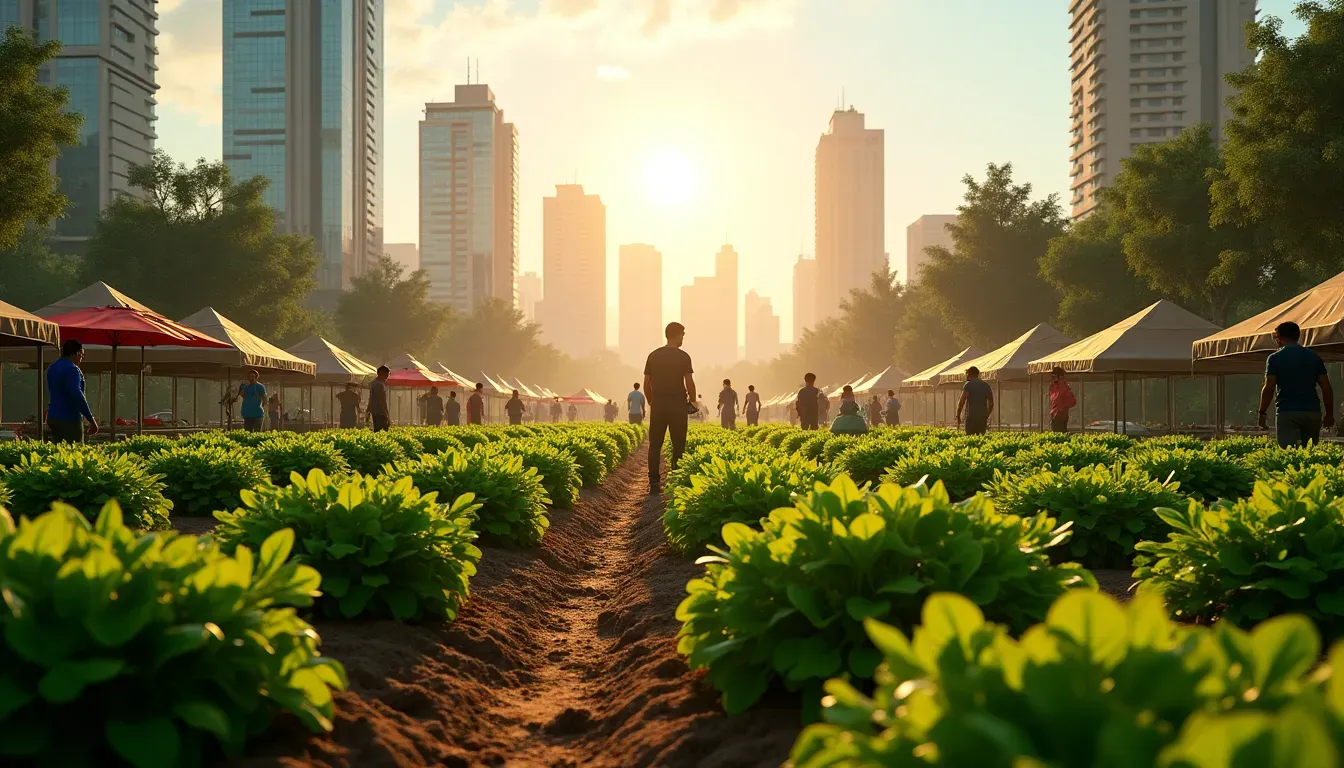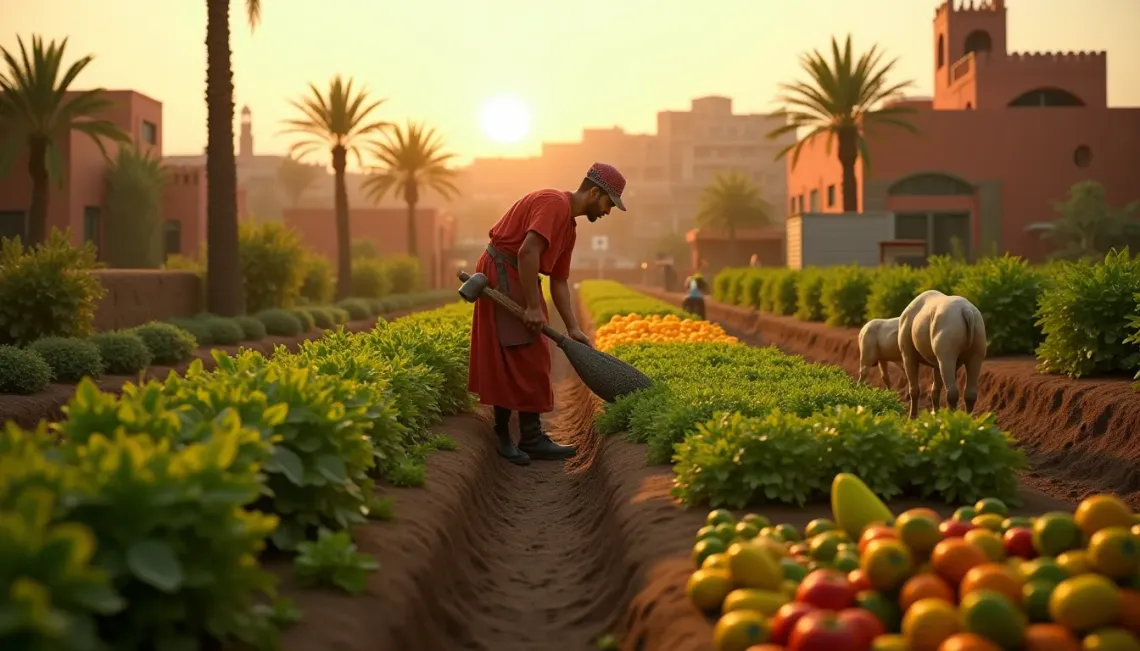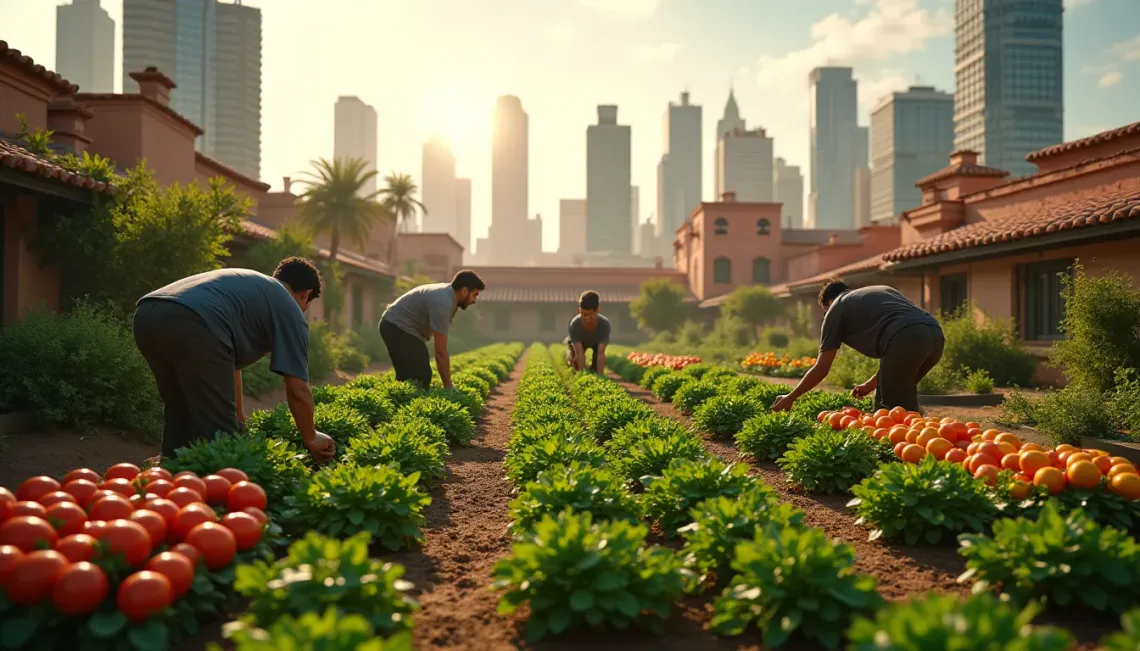Urban farming in Casablanca is rapidly becoming a model for sustainable city living, capturing the attention of urban planners and environmentalists worldwide. This innovative approach to agriculture in cities offers a blueprint for how densely populated areas can integrate green spaces and food production, ultimately fostering more resilient communities.
The Rise of Urban Agriculture in Casablanca
As Casablanca grows into a bustling metropolis, the demand for sustainable city living solutions becomes ever more pressing. Urban agriculture is at the forefront, with community-led initiatives transforming rooftops, vacant lots, and urban parks into lush gardens. These spaces not only provide fresh produce but also enhance the city's biodiversity, reduce heat, and improve air quality.
Benefits of Urban Farming
- Sustainability: Urban farming practices promote sustainability by reducing the food miles associated with transporting goods from rural areas.
- Community Engagement: It fosters community involvement by bringing residents together to cultivate and share food resources.
- Economic Opportunities: These initiatives create economic opportunities by establishing local jobs in agriculture and related industries.
- Improved Health: Access to fresh, organic produce contributes to better health outcomes for city inhabitants.
Case Study: Green Rooftops in Casablanca
One notable example of urban farming in Casablanca is the transformation of rooftops into productive agricultural spaces. These green rooftops not only produce vegetables and herbs but also serve as research laboratories for testing sustainable agricultural technologies.
Residents in various neighborhoods have embraced this concept, planting everything from tomatoes and peppers to aromatic herbs. The ability to produce food within the heart of the city greatly reduces dependency on external food sources, making the community more self-sufficient.
Challenges and Solutions
Despite the evident benefits, urban agriculture in Casablanca faces challenges such as water scarcity, limited space, and sometimes restrictive zoning laws. However, innovative solutions like rainwater harvesting, vertical gardening, and policy advocacy are tackling these issues head-on. These efforts are supported by partnerships between local governments, NGOs, and international organizations that are keen on promoting green urban living.
The Future of Sustainable City Living
The success of urban farming in Casablanca inspires other cities worldwide to adopt similar models. By integrating agriculture into the urban fabric, cities can enhance their sustainability and resilience against environmental challenges. Moreover, this model encourages a healthier lifestyle, greater food security, and a strengthened sense of community.
In summary, urban farming in Casablanca stands as a testament to the potential of sustainable city living. As we move forward, continued innovation and collaboration across various sectors will ensure the growth and success of urban agriculture in cities globally.




